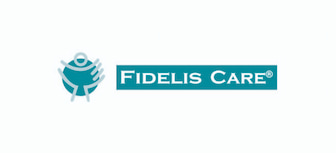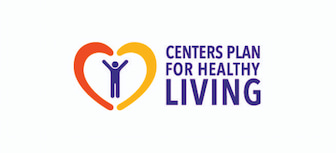Is It Easy to Find a Downtown Brooklyn Urology Practice?
If you live near Downtown Brooklyn and need to book an appointment with a urologist, there are many experienced, knowledgeable physicians to choose from. Downtown Brooklyn is a bustling area with access to all the big city amenities. It’s well-connected by multiple subway lines, which means it’s not difficult to get to a urologist in Downtown Brooklyn or other areas of NYC.
Complex or persistent urinary problems in both men and women are within the purview of a Downtown Brooklyn urologist. This type of medical specialist also diagnoses and treats concerns with the male reproductive system. Among the urologists in Downtown Brooklyn, you can find some who specialize in certain aspects of urology, such as:
- Pediatric urology
- Female urology
- Male fertility
- Urologic oncology
What Organs Does a Brooklyn Urologist Care for?
A Downtown Brooklyn urologist undergoes extensive training that includes medical school, a residency that usually lasts about five years and a fellowship in urology that lasts one to two years. Throughout this training, these physicians become experts in treating problems with any of the organs of the urinary system, including your:
- Kidneys. The kidneys are two bean-shaped organs that balance your body’s fluids, produce urine and filter the blood of toxins.
- Ureters. Urine is carried from your kidneys to your bladder in these two narrow tubes.
- Bladder. This is a hollow organ that stores urine. Healthy adults can store up to two cups of urine in their bladder for several hours.
- Urethra. Urine exits your body through this tube.
The best urologists in Downtown Brooklyn also treat problems with the adrenal glands, which are glands that sit on top of the kidneys. If the adrenal glands produce too much or too little of certain hormones, it can lead to health problems, such as:
- Addison’s disease
- Virilization
- Tumors
- Cushing syndrome
- Congenital adrenal hyperplasia
What Are the Conditions That a Downtown Brooklyn Urology Practice Treats?
Often, the first sign of a urinary tract disorder comes either during a routine annual exam with your primary care doctor or when you report symptoms to your general practitioner or internist. If basic treatments, like a round of antibiotics, don’t relieve your symptoms, your doctor may then make a referral to a specialist in urology for their expert diagnosis and treatment options. The most common conditions treated by a urologist include:
- Recurring urinary tract infections (UTIs). Your primary care physician usually treats the occasional UTI, but if you frequently get these infections, you may need a urological specialist.
- Kidney stones. A kidney stone is solid material, similar to a pebble, that forms inside your kidney. Small kidney stones pass on their own, but larger stones often need to be broken up or removed by an experienced urologist.
- Bladder control problems. Your urologist determines the cause of problems with incontinence or leaking small amounts of urine. Once diagnosed, urology treatment can begin.
- Enlarged prostate. Many men experience an enlarged prostate as they age, which can cause uncomfortable symptoms, such as weak urine flow or difficulty stopping or starting urination.
- Interstitial cystitis. This common condition is characterized by long-term discomfort in your bladder and an urge to urinate frequently.
Your Downtown Brooklyn urologist also diagnoses and treats cancers of the urinary system and the male reproductive system. Some of the most common of these cancers include bladder cancer, kidney cancer and prostate cancer. The best chance of beating cancer comes through early detection.
A nephrologist is a doctor who specializes in kidneys. Nephrology is a subspecialty of internal medicine, which means that nephrologists aren’t surgeons. If surgery is required on a kidney, such as removing all or part of a kidney, you need to book an appointment with a urologist.
What Are Some Signs of Urinary Problems?
The urinary tract is something most people don’t think much about until something goes wrong or your primary care physician spots an issue during a routine exam. Symptoms that can indicate a problem with your urinary tract include:
- Odd-colored urine, such as dark yellow, dark brown, pink or red
- Burning or pain while urinating
- Pelvic pain that doesn’t go away
- A weak stream of urine
- Difficulty emptying your bladder
- Involuntary leakage of urine
Abnormal urination accompanied by signs of infection such as fever and chills
Having the urge to urinate more frequently than usual may be a sign of a urinary problem, but there are other possible causes of urinary frequency, such as pregnancy, drinking more than usual or a side effect from a medication. If there’s no apparent reason for an increase in urinary frequency, find a doctor through this directory who specializes in urology in Downtown Brooklyn.
What Are Signs of Problems with the Male Reproductive System?
When women have problems with their reproductive organs, they consult a gynecologist. Men who have problems related to their reproductive system need to book an appointment with an experienced urologist. Signs of problems with the male reproductive system include:
- Concerning issues with sexual functioning, such as loss of libido or difficulty getting or keeping an erection
- Difficulty urinating, which may be caused by an enlarged prostate
- Lumps or swelling around the testicles
- An inability to impregnate a female partner
Pain in your groin or lower back can also signal genitourinary conditions. It’s recommended that if you have any of these symptoms, you should be evaluated by a specialist in urology, since early detection and effective treatment lead to better outcomes.
Requirements for a referral to a urologist vary from one health insurance company to another. Ask your primary care doctor or your insurance company to understand your coverage, including whether you need a referral and whether you have to make any payments out-of-pocket.


 My BestDoc
My BestDoc
 Future Appointments
Future Appointments
 Settings
Settings
 Sign out
Sign out










